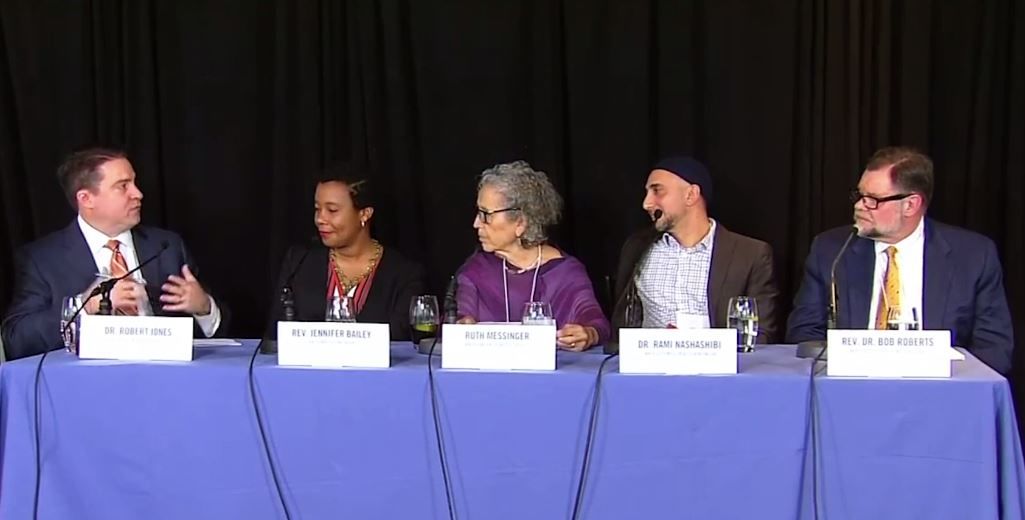Early last year, I shared about our work convening an event called “This American Moment: Bridging Religious Divides.” Held at the Religious Freedom Center of the Newseum Institute in Washington, D.C., the content of the half-day symposium acknowledged the current climate of polarization in the United States and explored the role philanthropy can play in building unity.
We hosted this event against a backdrop of growing partisanship, polarization and religious bigotry, and were confident that the conversation surfaced important new thinking about the role philanthropy can play in fostering productive dialogue across religious divides in the United States and their impact on society.
We hoped to begin a process of facilitating and encouraging interfaith dialogues, within the framework of religious pluralism, that bring us close to a collective understanding. Our founder, Conrad Hilton, was an early promoter of dialogue across all types of societal divides.
We left feeling good about our initiative and happy that we’d gathered religious leaders to come together in the spirit of unity.
In the months since, we’ve seen more horrific acts of violence against religious groups, inside their sacred places of worship. At the Tree of Life Synagogue in Pittsburgh that left 11 people dead, at the Al Noor Mosque and the Linwood Mosque in Christchurch, New Zealand, that left 50 people dead, and in Sri Lanka where 290 people were killed during services for Easter Sunday.
After this series of horrific events, we found ourselves responding yet again with a message of thoughts and prayers. However, this felt increasingly canned and unhelpful.
We must do more than just encourage interfaith dialogue. We must address what needs to happen in society to change the systemic causes of hate and violence.

One of the stated goals of the New Zealand shooter was to divide communities and incite a civil war in the United States. Religiously motivated hate crimes have been increasing in the US since 2016, up from 1,272 in 2016 to 1,564 in 2017.
So, how do we turn our thoughts and prayers into action?
Targets of these crimes are members of traditionally marginalized communities. If those looking to divide are building a platform based on violence, philanthropy needs to use its voice and resources to not just speak out against hate, but provide a solution for the deep cultural divides that exist in the world today.
The Global Center for Pluralism in Canada defines pluralism simply as an ethic of respect for diversity. Whereas diversity is a fact, pluralism is a choice. It’s a choice we all make every day when we recognize and value human differences and seek to listen, learn, and engage with the diversity around us.
Funding, advocacy, and policy change can only do so much. To have a lasting impact, we need to pair policies like common sense gun laws and hate crime laws with citizen-led culture change. Religious pluralism needs to move beyond gatherings convened by foundations, civic leaders and think tanks and become a movement that thrives on social media, ignites dinner conversation and becomes a force in the everyday lives of today’s youth.
Religious pluralism can play a catalytic role in unifying humanity, particularly in the wake of such tragedies as the hate-motivated shootings in New Zealand, both by financing programming and advocating for religious pluralism throughout the country.
We recognize faith-based organizations to be key players in civil society, both in ensuring the social fabric of a community as well as in times of crisis.
Philanthropy has an opportunity here–as a neutral convener, but also when we have our own differences. At the Hilton Foundation, we have chosen to raise our voice to bring attention to the opportunity that lies in embracing our differences.
As a start, let’s encourage one another to seek to listen, learn, and engage with the diversity around us.